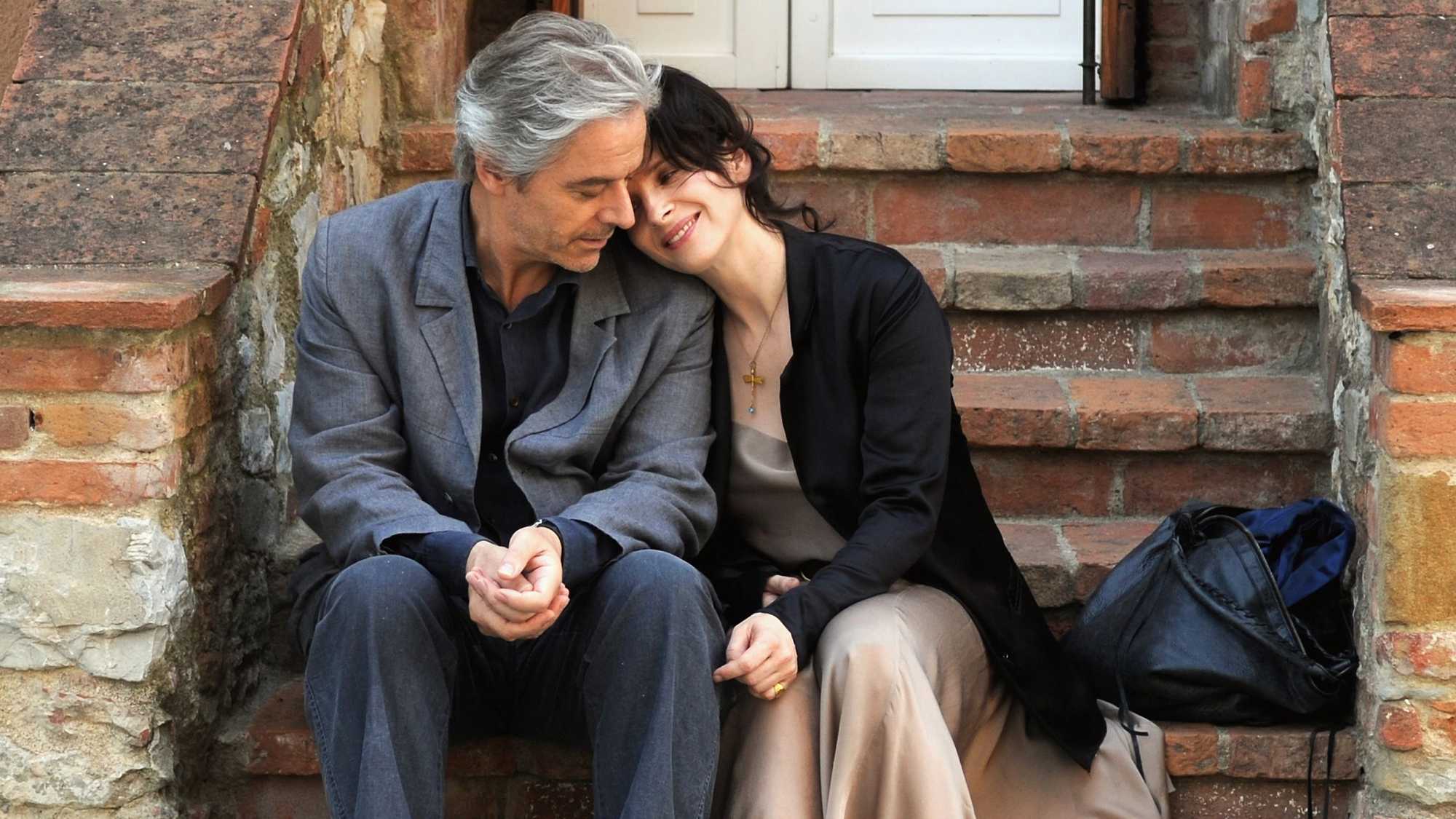Best Actress Award Cannes 2010. “An intriguing, not-quite love story featuring French superstar Juliette Binoche, English opera singer William Shimell and the spectacular Tuscan countryside.” — Salon.com

Absolutely gorgeous... It's that rare marvel: a film as pleasurable as it is sophisticated.
Screened as part of NZIFF 2010
Certified Copy 2010
Copie conforme
At Cannes this was the year of Juliette Binoche. She graced the Festival’s poster; then she took the Best Actress Award for her role in this tantalising film. She plays a nameless woman who lives with her son in the south of Tuscany. British author James Miller arrives to promote his book, also entitled Certified Copy, a treatise about originality and copies in art and in life. She’s a journalist who writes about books and offers to take him on a tour to a nearby village so they can talk.
“Legendary Iranian director Abbas Kiarostami, who won the 1997 Palme d’Or with A Taste of Cherry… slides smoothly into upscale Western filmmaking with Certified Copy, an intriguing, not-quite love story featuring French superstar Juliette Binoche, English opera singer William Shimell and the spectacular Tuscan countryside…
On one level, Certified Copy is exactly the kind of film it looks like – an elegant, wistful and picturesque tale of two ships passing in the Tuscan sunlight, in which not much really happens. But in fact it’s, well, a clever copy of that kind of film, with lots of other things under the surface. This story bristles with ideas and intelligence, and the more you stick with it, the more complicated it gets. Ultimately, Kiarostami isn’t just inquiring into the nature of love, marriage and relationships, he’s probing the porous boundary between stories and reality.” — Andrew O’Hehir, salon.com
“It’s an extraordinary film… the whole thing not only touches on all manner of male-female concerns… but develops a number of recurrent Kiarostami themes about art and nature, reality and representation, life and death. Superb.” — Geoff Andrew, Time Out